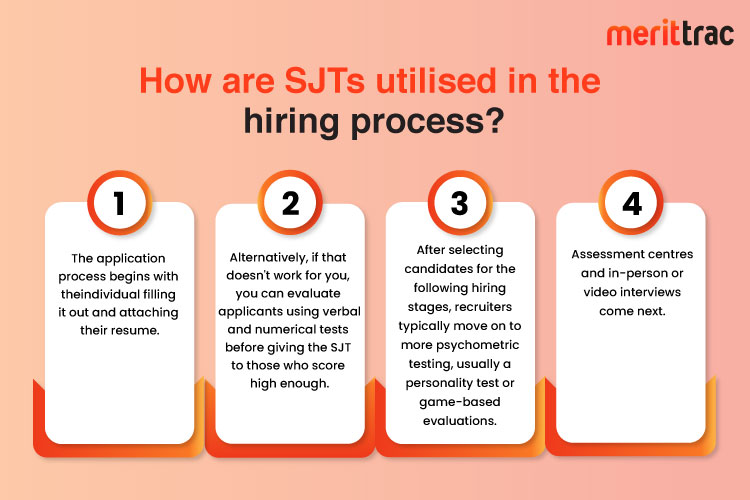
Situational Judgment Tests (SJTs): What is it and how does it help in Recruitment
Date: 15/12/2022 | Category: General
Situational judgment tests (SJTs) are a standard assessment method in the hiring process. They are now a standard component of hiring procedures. They are used by businesses to narrow the field of applicants for open positions. As a result, employers and job prospects are curious about how situational judgment exams operate and what they contain. This comprehensive guide describes the advantages and disadvantages of using SJTs and how businesses can incorporate them into their hiring processes. It also compares SJTs to conventional hiring methods.
What is a situational judgment test?
SJTs (situational judgment tests) are often used in hiring as these are employability skills tests. A series of situations relating to the everyday difficulties and duties of the work in question is presented to test-takers during a situational judgment exam. Situational judgment tests for recruitment are a kind of aptitude exam that gauges how well you can solve problems in the workplace.
Advantages to using SJTs
SJTs provide a great deal of flexibility in their application within the specific context of Recruitment and selection. Therefore, online situational judgment tests are being substituted for more conventional verbal reasoning tests and personality questionnaires in the recruitment process.
- Reducing Staff Turnover
Candidates get insight into the profession's requirements by taking into account a variety of practical, real-world situations. In other words, if you're offered the position, you should know its difficulties and intricacies.
- Expectation Management
Starting a new job may be a terrifying experience. It may be stressful to go in on your first day, go through the onboarding process, and then be given your new tasks. SJTs can reduce this tension. SJTs are popular with more than just businesses and HR departments.
- Diversity
SJTs are often anonymised. The candidate whose test is being scored won't be known to the recruitment staff in any way. As a result, those recruiters won't be exhibiting any unconscious bias.
How are SJTs utilised in the hiring process?
Candidates take situational judgment tests in which they are given passages and asked to select the best and worst of four possible solutions.
- The application process begins with the individual filling it out and attaching their resume.
- A situational judgment exam, a test of numerical thinking, or another kind of aptitude test is most likely to constitute the second level. When a candidate is evaluated using all three exams, their verbal and numerical skills are evaluated together with their competencies.
- Alternatively, if that doesn't work for you, you can evaluate applicants using verbal and numerical tests before giving the SJT to those who score high enough.
- After selecting candidates for the following hiring stages, recruiters typically move on to more psychometric testing, usually a personality test or game-based evaluations.
- Assessment centres and in-person or video interviews come next.
Why choose MeritTrac for situational judgment test needs?
MeritTrac has vast expertise in effectively assisting more than 400 clients and adheres to methods. It is a platform for online coding tests platform that offers real-time feedback to assist businesses to evaluate candidates' coding abilities for performance benchmarking and efficient hiring. The spoken English online test platform from MeritTrac, impartially assesses the spoken English proficiency of job applicants who speak languages other than English.
Final Words
The impact and worth of SJTs have been extensively studied. Research has repeatedly demonstrated how effective use of these exams may help businesses foresee the outcomes of a hiring choice. To find and keep the best candidates for each position in a particular company, the recruitment process can thus be sped up while costs can be reduced.












 Sales Hotline: USA: +1 646 916 0939 / Others: +91 80619 14700
Sales Hotline: USA: +1 646 916 0939 / Others: +91 80619 14700


